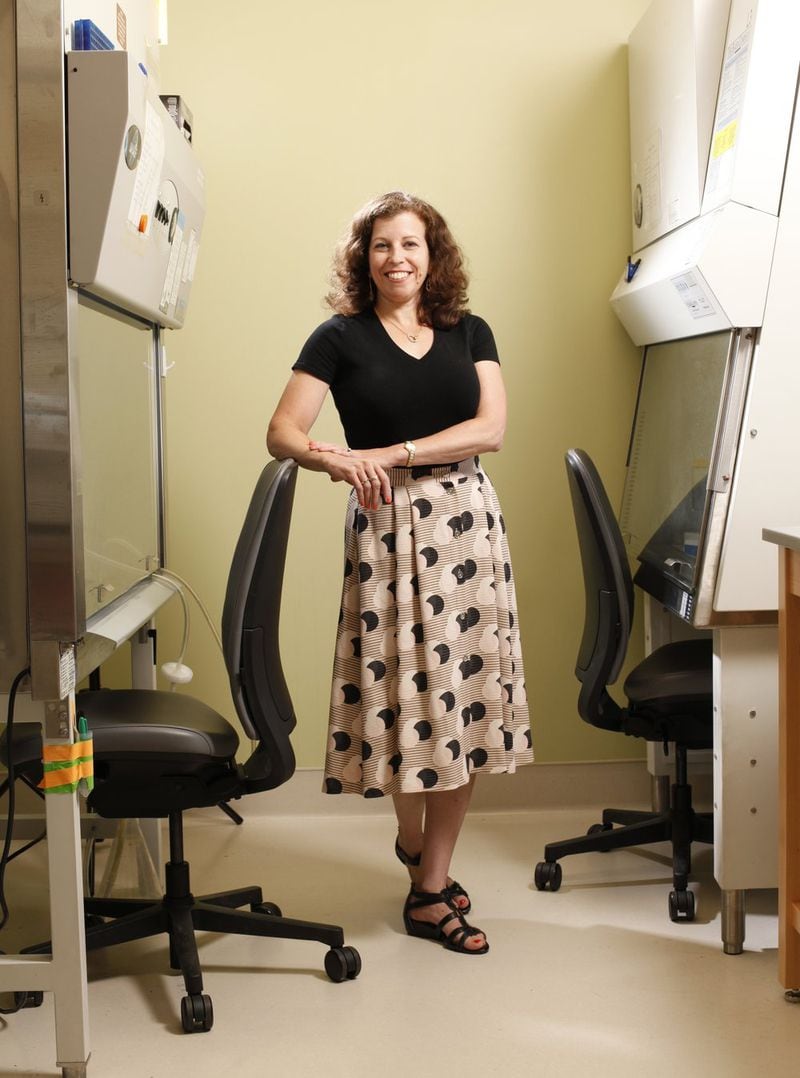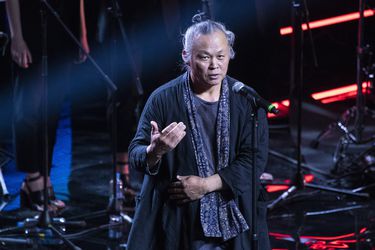La respuesta inmune no capacitada de los niños parece ser la llave para eliminar el Sars-CoV-2, una capacidad que los adultos no tienen.
Los niños representan solo un pequeño porcentaje de las infecciones por Covid-19, una tendencia que ha desconcertado a los científicos. Ahora, creciente evidencia sugiere por qué: el sistema inmunológico de los niños parece estar mejor equipado para eliminar el Sars-CoV-2 que el de los adultos.
Su sistema inmunológico ve el virus “y simplemente genera esta respuesta inmune realmente rápida y efectiva que lo apaga, antes de que tenga la oportunidad de replicarse hasta el punto de que dé positivo en la prueba de diagnóstico con hisopo”, explicó Melanie Neeland, una inmunólogo en el Murdoch Children’s Research Institute en Melbourne, Australia, citada en un artículo de la revista Nature.
Niños y adultos producen diferentes tipos y cantidades de anticuerpos en respuesta a la infección del nuevo coronavirus, Sars-CoV-2, dice una de estas evidencias, un estudio de investigadores del Colegio de Médicos Vagelos de la Universidad de Columbia, en EE.UU.
Las diferencias en los anticuerpos sugieren que el curso de la infección y la respuesta inmune es distinta en los niños y la mayoría de ellos eliminan fácilmente el virus de sus cuerpos.
“Nuestro estudio proporciona un examen en profundidad de los anticuerpos contra el Sars-CoV-2 en niños, lo que revela un marcado contraste con los adultos”, dijo la inmunóloga de la Universidad de Columbia Donna Farber, quien dirigió el estudio junto a Matteo Porotto.

“En los niños, el curso infeccioso es mucho más corto y probablemente no tan diseminado como en los adultos”, agrega Porotto. “Los niños pueden eliminar este virus de manera más eficiente que los adultos y es posible que no necesiten una respuesta inmune de anticuerpos fuerte para eliminarlo”, dijo.
Niños menos afectados por el Sars-CoV-2
Una de las manifestaciones más llamativas de la pandemia de Covid-19 es que la mayoría de los niños se enfrentan bien al virus mientras las personas mayores deben ejercer una fuerte lucha.
“Esta es una nueva infección para todos”, dice Farber, “pero los niños están adaptados de forma única para ver patógenos por primera vez. Para eso está diseñado su sistema inmunológico. Los niños tienen muchas células T ingenuas que pueden reconocer todo tipo de nuevos patógenos, mientras que las personas mayores dependen más de nuestra memoria inmunológica. No somos tan capaces de responder a un nuevo patógeno como los niños“.

Entre los 47 niños del estudio, 16 fueron tratados en el Centro Médico Irving de la Universidad de Columbia por Síndrome Multisistémico Inflamatorio Pediátrico (MIS-C) y 31 niños de edades similares dieron positivo por el virus después de visitar el centro médico para el tratamiento de otras afecciones. La mitad de los niños sin MIS-C no tenían síntomas de Covid-19. Otros 32 adultos incluidos en el estudio iban desde pacientes gravemente afectados ingresados en el hospital hasta aquellos con una enfermedad más leve que se recuperaron en casa.
Ambos grupos de niños produjeron el mismo perfil de anticuerpos, encontró el estudio, que difería del de los adultos.
En comparación con los adultos, los niños producen menos anticuerpos contra la proteína spike del virus, que el coronavirus usa para infectar células humanas. Los anticuerpos de los niños tenían la actividad menos neutralizante, mientras que todos los adultos, incluidos los adultos jóvenes de 20 años, producían anticuerpos neutralizantes. Los adultos más enfermos tuvieron más actividad neutralizante.
Aunque puede parecer contradictorio que los pacientes más enfermos produzcan anticuerpos con la mayor actividad neutralizante, pero Farber dijo que probablemente refleja la cantidad de tiempo que el virus está presente en los pacientes más enfermos.
“Existe una conexión entre la magnitud de su respuesta inmune y la magnitud de la infección: cuanto más grave es la infección, más robusta es la respuesta inmune, porque necesita tener más células inmunes y reacciones inmunes para eliminar una dosis más alta de un patógeno”, agregó la especialista.
A diferencia de los adultos, los niños también producen muy pocos anticuerpos contra una proteína viral que solo es visible para el sistema inmunológico después de que el virus infecta las células humanas. “Eso sugiere que en los niños, la infección no se propaga mucho y no mata muchas de sus células”, dijo Farber.
Más sobre Coronavirus
“Debido a que los niños eliminan el virus natural rápidamente, no tienen una infección generalizada y no necesitan una fuerte respuesta de anticuerpos”, indicó Porotto.
El curso reducido de la infección en los niños puede significar que son infecciosos durante un período de tiempo más corto en comparación con los adultos y, por lo tanto, es menos probable que propaguen el virus, aunque los investigadores no midieron la carga viral en los niños.
“Los actuales estudios en otros países indican que los niños más pequeños en edad escolar no son vectores del nuevo coronavirus, por lo que nuestros datos son consistentes con esos hallazgos”, señaló Farber.
Los niños deben responder bien a la vacuna
Las respuestas de anticuerpos encontradas en los niños no sugieren que los niños tendrán una respuesta más débil a una vacuna, señalaron los investigadores.
Las vacunas en desarrollo para el Sars-CoV-2 contienen partes del virus y no imitan la ruta normal de infección. “Aunque los niños no producen anticuerpos neutralizantes en respuesta a una infección natural con Sars-CoV-2, las vacunas están diseñadas para generar una respuesta inmunitaria protectora en ausencia de una infección”, dice Farber. “Los niños responden muy bien a las vacunas y creo que desarrollarán buenas respuestas de anticuerpos neutralizantes a una vacuna contra el Sars-CoV-2, y probablemente estarán mejor protegidos que los adultos”.

“Dicho esto, muy pocos estudios de vacunas están inscribiendo a niños actualmente y necesitaremos estos datos para comprender realmente qué tan bien funcionan las vacunas en los niños”.
¿Qué le falta al sistema inmunológico del adulto?
Aunque los hallazgos sugieren que el curso de la infección en niños y adultos es diferente, todavía no se sabe cómo los niños pueden eliminar el virus más fácilmente y de qué carece del sistema inmunológico de los adultos.
Farber, Porotto y sus colegas de la U. de Columbia ahora están buscando diferencias en la respuesta de las células T (los anticuerpos son producidos por las células B del sistema inmunológico), especialmente las células T que residen en el pulmón.
Los niños infectados con Sars-CoV-2 también pueden generar una respuesta más fuerte del sistema inmunológico innato, que despliega interferón y células llamadas macrófagos para atacar indiscriminadamente a las células infectadas por patógenos. Estudios anteriores sugieren que la respuesta inmune innata puede retrasarse en adultos infectados con Sars-CoV-2.
“Si la respuesta innata es realmente fuerte, eso puede reducir la carga viral en los pulmones, y los anticuerpos y las células T de la respuesta adaptativa tienen menos que aclarar”, dijo Farber.
También es posible que el virus sea menos capaz de infectar las células de los niños, posiblemente porque las células de los niños expresan menos proteínas que el virus necesita para infectar las células humanas.

Los investigadores de la U. de Columbia ahora están probando estas posibilidades con células de niños frente a las de adultos.
“Todavía hay todos estos temas sobre los que tenemos muy poca información”, señaló Porotto. “La interacción entre el virus y el huésped es la razón por la que vemos tanta diversidad en las respuestas a este virus, pero aún no entendemos lo suficiente sobre este virus como para determinar realmente qué conduce a una enfermedad grave y qué conduce a una enfermedad leve. "











:no_upscale()//laboratorio.latercera.com/wp-content/uploads/2020/12/Mandari%CC%81n-terrace-03-e1607560825196.jpg)
















Comenta
Por favor, inicia sesión en La Tercera para acceder a los comentarios.